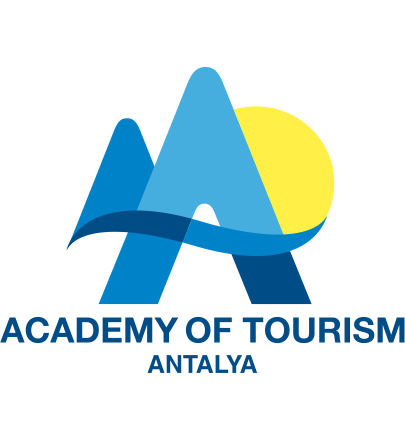F&B Management

Managing Beverage Operations
The course incorporates basic information on beverage operations in general, and its HR segment in food and beverage operations. While studying the module, students learn all details about alcoholic and non alcoholic beverages, get acquainted with their classification, service rules, compatibility with various meals, etc.
Purchasing for Food Service Operations
Purchasing is one of the most important functions in food and beverage operations. Tactically, purchasing activity main goal is avoiding lack of required products; strategically – managing purchasing process, integration with other departments and external suppliers, satisfying clients’ needs and demands. Purchasing for Food Service Operations’ tasks and role in food and beverage operations, department effective organization options, costs and expenses control principles, selecting right distributor partners: these are the module’s program topics.
Planning and Control for Food and Beverage Operations
This module helps students become experts in issues related with effective control system in food and beverage operations, expenses breakdowns, cost-volume-profit analysis, income and expense control, menu cost calculation, theft prevention among staff, etc. The course also incorporates information about software required for proper functioning of food and beverage operation.
Training and Development for the Hospitality Industry
At the moment personnel training in the hospitality industry gets special meaning, after all client requirements to the service are getting higher and higher, standards are changing, competition is becoming more intense.
In this module’s program students will learn about advantages of training, retraining and professional development, investment role in human resources development, training methods for employees of different levels.
Economy in Tourism & Catering
 Cost Analysis in Modern Business
Cost Analysis in Modern Business
The course’s goal is to form students’ math skills required for further mastering of basic economics and business subjects as well as solving economics analytical tasks.
Microeconomics
The main goal of the course is for students to receive concept and analytical knowledge required for understanding how companies and corporations make economy decision as well as for the market situation, results and phenomena abstract analysis.
Marketing Principles
Marketing Principles subject is an introductory course to organizational and social marketing. Among other topics the course covers marketing environment, consumers behavior, market studies and marketing mix.
Tourism Theory
The course is aimed to have a complex review of social and economical reasons of tourism. In order to understand basic concepts of tourism it is necessary to conduct ecological, economical, social and human resources analysis and identify how these factors interact with tourism management. Historical evolution of tourism and vast tourism theoretical knowledge lie in the center of this course that helps highlight present day trends and its forms in tourism. Eco tourism has become modern travel industry key concept. This course involves analysis of eco tourism specifics.
Tourism Geography
The course goal is to introduce, using complex approach, travel and tourism geography to students. Besides its globalism, tourism has some regional and local characteristics. The course covers regional aspect of tourism making detailed analysis of the most active sending and receiving countries in the world. Among others, new destinations such as China, India, Middle East countries and South Africa are being studied. Special attention is paid to geographical and cultural aspects of countries and macro regions.
Finance (Introduction to Finance)
This subject is an introductory course and covers some concepts, correlations, it also includes the study method known as case studies. Mastering the introductory course will help with further studies of financial and other subjects studied in college. This course tells about finance system meaning in financial intermediation, monetary policy goal system as well as reflects state commitments structure and budget policy space. Besides, the Introduction to Finance shows complete vision of basic interaction between financial, saving and investment decisions that are being made by subjects of economics.
Management and Organization:
Management is the process of resources planning, organization, administration and control required for goal achievement. The goal of this course is to provide basic knowledge to students, teach practical skills required both for professional activity and daily life. This approach is different from the traditional one that involves quick mastering of the material as well as its quick forgetting.
Travel Agency Management:
Introduction to management of a travel agency is the goal of this course. After this course studying students master information required for daily operations in a travel agency. Employees job descriptions, financial planning and accounting, sales and ARC reports preparation, clients invoicing and commission fees tracking are main topics of this subject. This course covers skills and methods required for successful opening and operation of a travel agency, as well as using basic principles and effective methods to attract and keep customers.
Business and Economics Analysis
The course goal is providing knowledge to students in the area of using standard probabilities instruments required for economic, statistic and business calculations.
Macroeconomics
The common goal of the course is teaching students how to apply conceptual and analytical skills required for understanding general economics function and what the government can do to affect the economic industry, costs and unemployment levels.
Informational Tourism
The course goal to offer a complex vision of informational tourism phenomenon. The course is dedicated to important IT issues in the area of travel and tourism, not only as a promotion instrument through Internet, etc, but also as administration and information systems including travel agencies, hotels and airlines.
Tourism Economics
The goal of the course is to introduce tourism economics concept to students. By analyzing tourism area economics students are supposed to understand macro and microeconomics, models application and quantity methods applied in tourism economics as key issues, such as expenditures multiplier effect and tourism demand forecasting. Besides, the course involves introduction to tourism planning.
Statistics
This subject is a compulsory course for a university level teaching unit. The students are supposed to get knowledge of and master simple statistical methods required for a managing company measurement and operation analysis. They are also supposed to get introduced to theoretical and practical problems of index calculation. This subject also helps understand and use methods incorporated into professional topics.
Business Economics
Acquisition of knowledge about global trends and processes. Corporate studies of various companies, international conventions and international MBA courses will be used as educational resources.
Integration into EU Introduction
The course goal is introduction of the process of EU integration since the end of World War II until nowadays, paying attention to EU evolution and structure, including geography, history, institutional base, single market and four freedoms promotion, etc.
Hotel Management

The Lodging and Food Service Industry
This module provides basic knowledge of the lodging and food service industry and has been specifically developed for those who do not have vast experience in the lodging business. Students get acquainted with the hospitality history, different types of tourism, structure, organization and service in this area. The course covers two areas: lodging and food service.
Management of Food and Beverage Operations
During this module studying students obtain fundamental theoretical knowledge and practical skills required for organization, planning and control of food and beverage operations; they learn how to manage the food preparation and guests service processes, make marketing analysis of the services provided by a hotel.
Food Safety: Managing with the HACCP System
Food safety has very high standards to maintain nowadays, therefore it is extremely important to manage all food production, storage and issuing processes skillfully. The method of food safety based on hazard analysis and critical control points is taught in the module program in the format convenient for students. Student study each production stage very carefully: from menu planning, products purchasing, food preparation to service and cleaning; they identify specific risks, and learn how to use control methods for their prevention.
Managing Housekeeping Operations
Not only luxurious interiors create coziness and comfort in a hotel, but so does the operating personnel. The hotel’s atmosphere, clients feedback and, therefore, revenue depend on the Housekeeping operations. During the course studies students learn all details of successful housekeeping operation: from the correct way of recruiting and maintaining qualified personnel, planning and organization to technical details of cleaning various hotel areas. Practical tips from specialists will help use the knowledge in real live easily.
Managing Front Office Operations
The first impression of a hotel depends on how professionally the front office staff works. Thanks to this module students are able to understand the front office role, its relation to other services and meaning of the overall hotel operation. The module parts also incorporate revenue management and computer technologies used in the Front office operations. Practical research and global practice studies are great addition to the module.
Managing Technology in the Hospitality Industry
The modern level of hospitality industry development involves using various technical innovations. The newest computer technologies help make the managing system more effective, expand clients base, solve marketing tasks. Description of computer technologies in all functional areas of a hotel including booking, rooms, food and beverage, sales, accounting, basic purchases technical services and modern information systems management, system safety issues are covered in the course.
Marketing in the Hospitality Industry
Specialists working in the hospitality industry first of all should be client oriented. Understanding clients, learning their wishes and needs are the main goal of marketing. The course content presents practical introduction into marketing in the tourism and hospitality industry. Main areas of marketing are covered in the module program: clients wishes and needs identification, creation products and services satisfying these needs, products and services promotion as well sales for the company’s revenue increase.
Managing Hospitality Human Resources
Special attention in the hospitality industry is paid to Human Resources management. The company’s success rely on how much is invested in employees and how managers use the human potential. This module covers Human Resources management strategy as a special management area, students review modern approaches to Human Resources management, personnel recruitment specifics, employees motivation systems, learn labor law requirements, obtain effective leadership skills.
Supervision in the Hospitality Industry
Any supervision activity, starting with accepting new service standards ending with innovation projects implementation, affect staff job and task performance. The course covers effective supervision and managerial skills required in the hospitality industry, as well as staffing, personnel selection and training, job performance increase, conflict management and various methods of time management.
International Hotels: Development and Management
This module helps get a thorough look at the international hospitality industry, its development and management. Students learn about its nowadays trends, international policy in the travel and tourism area and factors affecting the hospitality industry in general.
Hospitality Facilities Management and Design
Thanks to this module, students are able to solve problems of design and maintenance (including basic technical systems, food preparation equipment and facilities design) in the hospitality industry. Costs saving and efficiency improving technologies, newest computer technologies that simplify operations in the hospitality industry are covered in this course as well.
Hospitality Industry Financial Accounting
This module is a comprehensive introductory course into financial accounting in the hospitality industry. Students learn about accounting department role in a hotel operation, obtain knowledge of accounting functions, forms and principles, get acquainted with full accounting cycle and different report types.
F&B Management

Managing Beverage Operations
The course incorporates basic information on beverage operations in general, and its HR segment in food and beverage operations. While studying the module, students learn all details about alcoholic and non alcoholic beverages, get acquainted with their classification, service rules, compatibility with various meals, etc.
Purchasing for Food Service Operations
Purchasing is one of the most important functions in food and beverage operations. Tactically, purchasing activity main goal is avoiding lack of required products; strategically – managing purchasing process, integration with other departments and external suppliers, satisfying clients’ needs and demands. Purchasing for Food Service Operations’ tasks and role in food and beverage operations, department effective organization options, costs and expenses control principles, selecting right distributor partners: these are the module’s program topics.
Planning and Control for Food and Beverage Operations
This module helps students become experts in issues related with effective control system in food and beverage operations, expenses breakdowns, cost-volume-profit analysis, income and expense control, menu cost calculation, theft prevention among staff, etc. The course also incorporates information about software required for proper functioning of food and beverage operation.
Training and Development for the Hospitality Industry
At the moment personnel training in the hospitality industry gets special meaning, after all client requirements to the service are getting higher and higher, standards are changing, competition is becoming more intense.
In this module’s program students will learn about advantages of training, retraining and professional development, investment role in human resources development, training methods for employees of different levels.
Economy in Tourism & Catering
 Cost Analysis in Modern Business
Cost Analysis in Modern Business
The course’s goal is to form students’ math skills required for further mastering of basic economics and business subjects as well as solving economics analytical tasks.
Microeconomics
The main goal of the course is for students to receive concept and analytical knowledge required for understanding how companies and corporations make economy decision as well as for the market situation, results and phenomena abstract analysis.
Marketing Principles
Marketing Principles subject is an introductory course to organizational and social marketing. Among other topics the course covers marketing environment, consumers behavior, market studies and marketing mix.
Tourism Theory
The course is aimed to have a complex review of social and economical reasons of tourism. In order to understand basic concepts of tourism it is necessary to conduct ecological, economical, social and human resources analysis and identify how these factors interact with tourism management. Historical evolution of tourism and vast tourism theoretical knowledge lie in the center of this course that helps highlight present day trends and its forms in tourism. Eco tourism has become modern travel industry key concept. This course involves analysis of eco tourism specifics.
Tourism Geography
The course goal is to introduce, using complex approach, travel and tourism geography to students. Besides its globalism, tourism has some regional and local characteristics. The course covers regional aspect of tourism making detailed analysis of the most active sending and receiving countries in the world. Among others, new destinations such as China, India, Middle East countries and South Africa are being studied. Special attention is paid to geographical and cultural aspects of countries and macro regions.
Finance (Introduction to Finance)
This subject is an introductory course and covers some concepts, correlations, it also includes the study method known as case studies. Mastering the introductory course will help with further studies of financial and other subjects studied in college. This course tells about finance system meaning in financial intermediation, monetary policy goal system as well as reflects state commitments structure and budget policy space. Besides, the Introduction to Finance shows complete vision of basic interaction between financial, saving and investment decisions that are being made by subjects of economics.
Management and Organization:
Management is the process of resources planning, organization, administration and control required for goal achievement. The goal of this course is to provide basic knowledge to students, teach practical skills required both for professional activity and daily life. This approach is different from the traditional one that involves quick mastering of the material as well as its quick forgetting.
Travel Agency Management:
Introduction to management of a travel agency is the goal of this course. After this course studying students master information required for daily operations in a travel agency. Employees job descriptions, financial planning and accounting, sales and ARC reports preparation, clients invoicing and commission fees tracking are main topics of this subject. This course covers skills and methods required for successful opening and operation of a travel agency, as well as using basic principles and effective methods to attract and keep customers.
Business and Economics Analysis
The course goal is providing knowledge to students in the area of using standard probabilities instruments required for economic, statistic and business calculations.
Macroeconomics
The common goal of the course is teaching students how to apply conceptual and analytical skills required for understanding general economics function and what the government can do to affect the economic industry, costs and unemployment levels.
Informational Tourism
The course goal to offer a complex vision of informational tourism phenomenon. The course is dedicated to important IT issues in the area of travel and tourism, not only as a promotion instrument through Internet, etc, but also as administration and information systems including travel agencies, hotels and airlines.
Tourism Economics
The goal of the course is to introduce tourism economics concept to students. By analyzing tourism area economics students are supposed to understand macro and microeconomics, models application and quantity methods applied in tourism economics as key issues, such as expenditures multiplier effect and tourism demand forecasting. Besides, the course involves introduction to tourism planning.
Statistics
This subject is a compulsory course for a university level teaching unit. The students are supposed to get knowledge of and master simple statistical methods required for a managing company measurement and operation analysis. They are also supposed to get introduced to theoretical and practical problems of index calculation. This subject also helps understand and use methods incorporated into professional topics.
Business Economics
Acquisition of knowledge about global trends and processes. Corporate studies of various companies, international conventions and international MBA courses will be used as educational resources.
Integration into EU Introduction
The course goal is introduction of the process of EU integration since the end of World War II until nowadays, paying attention to EU evolution and structure, including geography, history, institutional base, single market and four freedoms promotion, etc.
Hotel Management

The Lodging and Food Service Industry
This module provides basic knowledge of the lodging and food service industry and has been specifically developed for those who do not have vast experience in the lodging business. Students get acquainted with the hospitality history, different types of tourism, structure, organization and service in this area. The course covers two areas: lodging and food service.
Management of Food and Beverage Operations
During this module studying students obtain fundamental theoretical knowledge and practical skills required for organization, planning and control of food and beverage operations; they learn how to manage the food preparation and guests service processes, make marketing analysis of the services provided by a hotel.
Food Safety: Managing with the HACCP System
Food safety has very high standards to maintain nowadays, therefore it is extremely important to manage all food production, storage and issuing processes skillfully. The method of food safety based on hazard analysis and critical control points is taught in the module program in the format convenient for students. Student study each production stage very carefully: from menu planning, products purchasing, food preparation to service and cleaning; they identify specific risks, and learn how to use control methods for their prevention.
Managing Housekeeping Operations
Not only luxurious interiors create coziness and comfort in a hotel, but so does the operating personnel. The hotel’s atmosphere, clients feedback and, therefore, revenue depend on the Housekeeping operations. During the course studies students learn all details of successful housekeeping operation: from the correct way of recruiting and maintaining qualified personnel, planning and organization to technical details of cleaning various hotel areas. Practical tips from specialists will help use the knowledge in real live easily.
Managing Front Office Operations
The first impression of a hotel depends on how professionally the front office staff works. Thanks to this module students are able to understand the front office role, its relation to other services and meaning of the overall hotel operation. The module parts also incorporate revenue management and computer technologies used in the Front office operations. Practical research and global practice studies are great addition to the module.
Managing Technology in the Hospitality Industry
The modern level of hospitality industry development involves using various technical innovations. The newest computer technologies help make the managing system more effective, expand clients base, solve marketing tasks. Description of computer technologies in all functional areas of a hotel including booking, rooms, food and beverage, sales, accounting, basic purchases technical services and modern information systems management, system safety issues are covered in the course.
Marketing in the Hospitality Industry
Specialists working in the hospitality industry first of all should be client oriented. Understanding clients, learning their wishes and needs are the main goal of marketing. The course content presents practical introduction into marketing in the tourism and hospitality industry. Main areas of marketing are covered in the module program: clients wishes and needs identification, creation products and services satisfying these needs, products and services promotion as well sales for the company’s revenue increase.
Managing Hospitality Human Resources
Special attention in the hospitality industry is paid to Human Resources management. The company’s success rely on how much is invested in employees and how managers use the human potential. This module covers Human Resources management strategy as a special management area, students review modern approaches to Human Resources management, personnel recruitment specifics, employees motivation systems, learn labor law requirements, obtain effective leadership skills.
Supervision in the Hospitality Industry
Any supervision activity, starting with accepting new service standards ending with innovation projects implementation, affect staff job and task performance. The course covers effective supervision and managerial skills required in the hospitality industry, as well as staffing, personnel selection and training, job performance increase, conflict management and various methods of time management.
International Hotels: Development and Management
This module helps get a thorough look at the international hospitality industry, its development and management. Students learn about its nowadays trends, international policy in the travel and tourism area and factors affecting the hospitality industry in general.
Hospitality Facilities Management and Design
Thanks to this module, students are able to solve problems of design and maintenance (including basic technical systems, food preparation equipment and facilities design) in the hospitality industry. Costs saving and efficiency improving technologies, newest computer technologies that simplify operations in the hospitality industry are covered in this course as well.
Hospitality Industry Financial Accounting
This module is a comprehensive introductory course into financial accounting in the hospitality industry. Students learn about accounting department role in a hotel operation, obtain knowledge of accounting functions, forms and principles, get acquainted with full accounting cycle and different report types.





